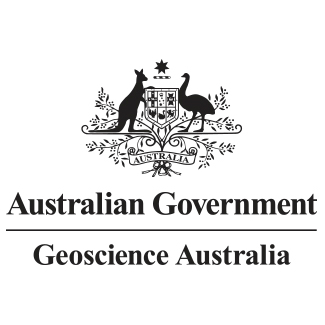Brief description
A depositional environment is defined as a site where sediments (e.g. detrital, chemical) accumulated, governed by physical, biological, and chemical processes related to modern environments such as fluvial, deltaic or marine. Once the sediments are lithified during burial processes, sedimentary rocks are assigned to ancient environments, referred to as palaeodepositional environments. Characteristics of sedimentary rocks often used to interpret depositional environments include lithology, sedimentary structures and textures, and any preserved fossils – all of which provide important information regarding the geologic evolution of sedimentary basins. Depositional environment data form part of Geoscience Australia’s Reservoir, Facies and Shows (RESFACS) database. It contains depth-based information regarding palaeogeographic settings interpreted from lithofacies analysis. Interpretations are based on lithological and sedimentary structure evaluations, well log analysis, and palynological and (micro)palaeontological analyses of sediments that were intersected by offshore petroleum wells. Data entered into the depositional environment table is primarily sourced from both the Basic and Interpretive volumes of Well Completion Reports (WCR) provided by the petroleum industry under the Offshore Petroleum and Greenhouse Gas Storage Act (OPGGSA) 2006 and previous Petroleum (submerged Lands) Act (PSLA) 1967. Data is also sourced from litho- and bio-facies evaluations and palaeontological studies by Geoscience Australia and its predecessor organisations, the Australian Geological Survey Organisation (AGSO) and the Bureau of Mineral Resources (BMR), as well as from state and territory geological organisations, scientific publications, university theses and books. The database structure has evolved over time and will keep changing as different types of relevant data become available and the delivery platform changes. Data hosted within Geoscience Australia’s Oracle petroleum wells database was initially delivered through the Petroleum Wells web page, http://dbforms.ga.gov.au/www/npm.well.search, which is due to be decommissioned in the future. The depositional environment data will now be available to view and download through the Geoscience Australia Portal Core, https://portal.ga.gov.au/.Lineage
Maintenance and Update Frequency: asNeeded
Statement: The depositional environment data will now be available to view and download through the Geoscience Australia Portal Core, https://portal.ga.gov.au/.
Notes
PurposeTransplanting the petroleum wells depositional environment data to the Geoscience Australia Portal Core
Issued: 29 06 2022
text: westlimit=112.00; southlimit=-44.00; eastlimit=154.00; northlimit=-9.00
Subjects
Depositional environment |
EARTH SCIENCES |
Facies |
Published_External |
RESFACS |
geoscientificInformation |
User Contributed Tags
Login to tag this record with meaningful keywords to make it easier to discover
Other Information
Link to Geoscience Australia Portal Core
uri :
https://portal.ga.gov.au/![]()
Reservoir, Facies and Hydrocarbon Shows (RESFACS) WFS
local : 147139
Reservoir, Facies and Hydrocarbon Shows (RESFACS) WMS
local : 147140
Identifiers
- DOI : 10.26186/146444

- URI : pid.geoscience.gov.au/dataset/ga/146444

- global : 1689693d-55ec-478a-9967-b76a6e718ec0


